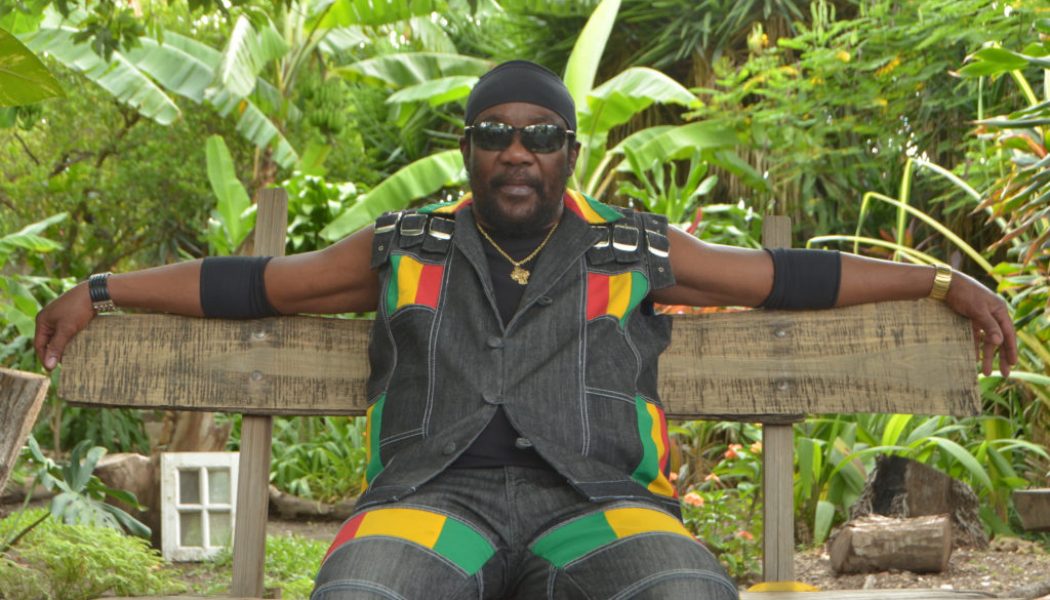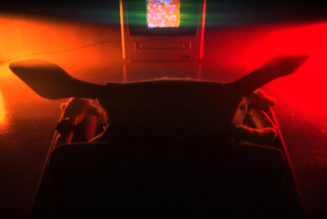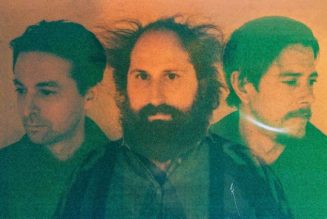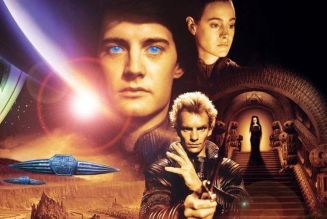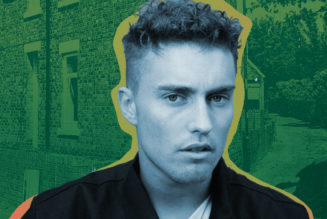
The world lost reggae legend Toots Hibbert on Sept. 11 (though no cause of death has been listed, he had been hospitalized with COVID symptoms prior to his death). One of the more unfortunate things, though, is that the 77-year-old Hibbert was celebrating the release of Got To Be Tough, his first album in a decade, released Aug. 28, which showed that he wasn’t slowing down creatively.
Ahead of the new album, Hibbert did a select few American interviews. I was one of those fortunate ones; we spoke on Zoom on Aug. 4, a few weeks before his hospitalization.
Seated at the mixing board at his studio in Jamaica, Mr. Hibbert — as his handler who brought him to his mixing board desk where Mr. Hibbert sat for the duration of the 30-minute Zoom call, addressed him — showcased his trademark spirit and warmth that permeated such No. 1 Jamaican hits such as “Bam Bam,” “54-46 (That’s My Number),” a reference to his prison number from his 1967 arrest for possession of marijuana, “Pressure Drop” and “Monkey Man,” their first international hit in 1970.
With every question, the laidback Hibbert (who was clad in black and cooly sporting sunglasses) would tilt his head back and let out a huge, bellowing laugh, prefacing each guffaw with a resounding, “Oh my God.” The spirit and larger than life personality were joyous as he told tales of his friendship with Bob Marley, of the mutual admiration society that he shared with fans and peers like the Rolling Stones, Dave Matthews and the Red Hot Chili Peppers.
Revisiting this so soon after his death is emotional — especially since he appeared to be in great health and was upbeat. But mostly, it is the joy of getting to speak to a legend at least once before he died combined with the sorrow that he was able to get a glimpse of the tremendous response to the album and saw that the world does indeed still believe in the words of Toots and the Maytals.
Below is our conversation.
SPIN: How is it in Jamaica today?
Toots Hibbert: I’m doing okay today and yesterday was okay also. In Jamaica today it was just like yesterday. Only problem virus going around you cannot see. I can’t see it, whether it’s black or white. But we have got to be tough.
Tell me about “Warning, Warning” and the importance of speaking out on your first song back in a decade.
I’m warning people, warning my audience, warning my friends, warning my brother, whether you’re black or you’re white if you possess all these bad ways this song is talking to you. And talking to me if I do the same thing. So I try to write a song that tells a true story for my audience and for the world.
What was the true story that inspired “Warning, Warning?”
There’s somebody who can’t control themselves. And before that, he was a very nice, quiet person. But after a while they get outrageous and that caused me to write this song. This is a warning. That’s why I wrote this song because people can listen to my words and understand what I’m talking about. Giving a warning people should really change their ways and they will see a better life also. So it’s the song that is telling people what they should do. I don’t know how to put it otherwise (laughs). But people is learning and this is a warning.
“Got To Be Tough” seems like a very appropriate message for 2020.
“Got To Be Tough,’ what’s going on with Corona and with everything life in the ghetto is so hard. In the area of black and white some people have it so good, some people have it so hard, so you gotta be tough to get the way of all these things that are coming towards you. You gotta be tough to overcome all these problems. So that’s why I wrote this song from three years ago and now it’s been a long time since I release an album and I just automatically did it. I can’t believe that people still respect the true words of Toots And The Maytals.
But you see it gets passed on to the next generation by artists whether it’s the Chili Peppers or Dave Matthews.
Yes, that’s my friend. They’re all my friends, the Rolling Stones, you name it. A lot of these great people, I can’t even tell you. Everybody, I can’t tell you, they are my hero and I am their hero.
As you have toured over the years and seen all the young fans experiencing Toots And The Maytals for the first time how has that inspired you?
[Laughs.] That’s true. They told me, “I’m so excited.” I told them, “I’m so excited.” What are they trying to do? Myself and Bob Marley and other greats from Jamaica, these young singers are learning from our stories, from our musical stories. And I really appreciate it, I love them and they’re gonna learn more and more and more every day. I love it. I’m in the studio right now working hard to help young people in Jamaica who have talent. And maybe they don’t know how to write the song. I’m a songwriter and I want to give it to them one time, two times, three times, four times. I’ll give my vibe to them all the time.
When did you start working on this record?
It’s about three years and more because I stayed long in the studio to make sure that when it comes to sound, playing the guitar, playing the bass, playing the drums, playing the congos, playing the harmonica, I’m arranging, I’m composing and producing. It takes time. That’s why I take a decade to fulfill my work to my audience all over the world.
And yet the message is right on point for 2020 in many respects.
It’s surprising to me to know that this song, “Gotta Be Tough,” fits in this time. And I really appreciate what this song is doing for my fans, black and white, old and young, large and small. I never planned it, but I know this could be a great song for my fans.
Did you have any idea when you were doing this song more than 50 years ago it would endure for so many generations?
[Laughs.] No, I never knew. That’s why when I write a song I make sure to tell a true story. So I’m telling a story to the world, the whole world. I never learned to write a rhyming song, nursery rhyme, like other people. I just write facts to let people know right is right and wrong is wrong. Truth is truth and lies are lies.
Who are others you admire for being able to tell the truth?
John Lennon, the Rolling Stones and all those great people. I can’t remember all of their names. and In Jamaica Delroy Wilson, great people, Owen Gray, Beenie Man in the Dancehall, Shaggy. If I start to call people’s names they’re going to be mad at me because I don’t remember everybody’s name. Willie Nelson, no more names. Bob Marley, Bob was my friend. He’s like a brother and all his sons and daughters called me uncle. Me and Bob was real close. Peter Tosh, everybody, we all was close.
What do you take from this album and what do you hope others take from it?
I hope other people take a lot of caution from my song. And if they are a musician or songwriter they can copy my words and my understanding, what I’m talking about. And they can take that and be history because my song not only talking about big people and other people, it’s speaking about children, boys and girls, to look up and be strong, believe in what is right. Don’t do nothing that’s wrong, write good words for this song because you have a lot of young artists today trying to sing and play instruments, believe in themselves. Believe in what they do and be strong because all this virus that got everyone today, if you write good songs, I believe it can drive away all fears.
